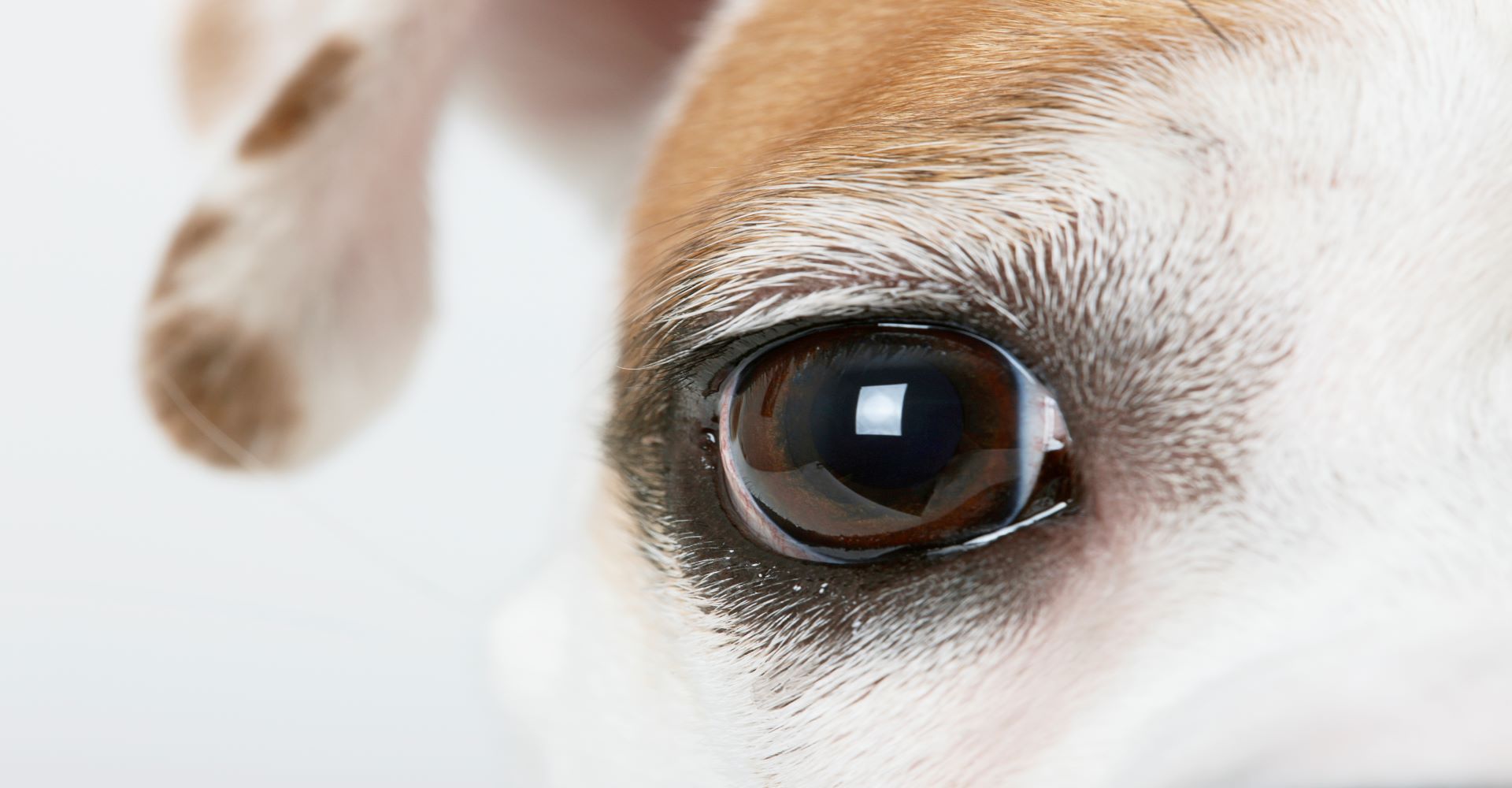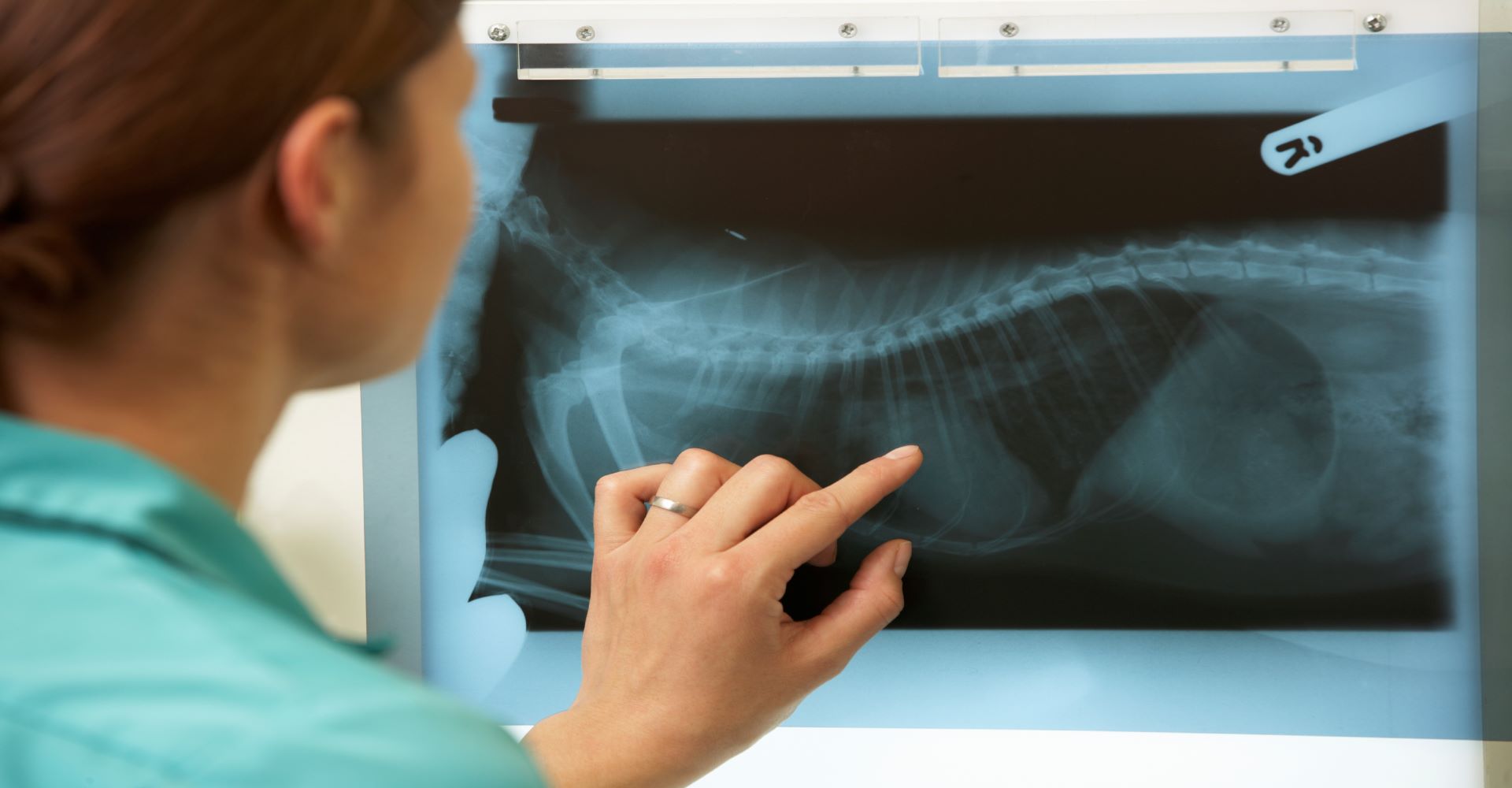How Radiology Helps Improve Care and Generates Revenue
Looking to enhance your radiology skills? Dr. Jay Griffin talks about how radiology can help improve patient care and generate revenue for your...
2 min read
Viticus Group : September 26, 2019 11:00:00 AM PDT

Improving eye care and updating equipment in your veterinary practice can mean earlier disease diagnosis and better patient care—right before your very eyes.
They say eyes are the window into the soul, but they’re also the window into the body and overall health of a patient. Thanks to innovative equipment and thorough ocular exams, we can detect chronic and infectious diseases in their earlier stages to provide better treatment and outcomes for patients.
In this Quick Cup of Knowledge, veterinary ophthalmologist Dr. Terah Webb answers some questions about ophthalmology and discusses how veterinary teams can elevate care in this area. Typically, general practitioners don’t delve too deep into ophthalmology because of a lack of time during appointments and lack of updated equipment, but it should be a part of any regular check-up or exam.
Dr. Webb says that one of the first things to think about is making sure your equipment is up to date—instruments that measure intraocular pressure (IOP), for example, need to be accurate to be effective. With the right tools and more practice, general practitioners can start an initial diagnosis, rule out, or starts treatments for eye problems such as glaucoma or corneal ulcers.
To be able to catch these problems early, you have to know what normal, healthy eyes look like. The more you use the equipment on “normal” patients, the more confident you will be when faced with an ophthalmology case. You’ll have more trust in yourself to make accurate diagnoses, which will lead to earlier, better treatment.
What do eye exams tell us about the health of the patient?
Not only are eye exams helpful in finding primary eye disease, but you can also find indicators of other systemic and infectious diseases.
According to Dr. Webb, patients with a systemic disease like diabetes, renal disease, hypothyroidism, and heart disease should have detailed eye exams done at the same time the veterinarian does routine checks of those chronic diseases. Ocular changes found in eye exams can indicate problems like high blood pressure, which you can then monitor more closely.
When should a general practitioner refer to an ophthalmologist?
There’s not a lot of room for error in ophthalmology, so having a good relationship with a local ophthalmologist who you can refer patients to when they need a more detailed exam or specialized treatment is important.
If you don’t feel confident about a diagnosis or if you start a treatment plan and unexpected things happen, Dr. Webb recommends that you refer. She explains that “there are so many diseases that start down the path of causing damage that can’t be undone. So, the earlier you can refer something, the better.”
What are the upcoming hot topics in ophthalmology?
Dr. Webb says there’s a couple of topics to keep your eyes open for in the field of ophthalmology—namely, advances related to glaucoma and SARDS.
In the next few years, Dr. Webb feels that one focus of her college and the Vision for Animals Foundation is in the world of glaucoma. Researchers are working on advancing our diagnostic capabilities, looking at genetic markers, and looking for prognostic indicators of glaucoma.
Other important research you can expect to see in the upcoming years related to ophthalmology is regarding sudden acquired retinal degeneration syndrome (SARDS). There’s much we don’t understand about SARDS, and there’s currently no effective treatment supported by published clinical trials. But they’re working on it!
So keep your eyes peeled for what’s happening in ophthalmology to improve eye care in your practice. Because happy clients leaving the clinic with healthy patients is definitely a sight for sore eyes.
Stay in the Know!
If you’re looking to further the oncology skills you already have, WVC’s Advanced Surgical Oncology Course is worth checking out!
Click the link to subscribe to our YouTube channel or check out our WVC Resource Library full of great podcasts, videos, and digital downloads!
Disclaimer
Content may contain advertising and sponsorships. Advertisers and sponsors are responsible for ensuring that material submitted for inclusion is accurate and complies with applicable laws. We are not responsible for the illegality or any error, inaccuracy or problem in the advertiser’s or sponsor’s materials.
Advertising and sponsorship material and/or opinions are not are not a reflection on Viticus Group.

Looking to enhance your radiology skills? Dr. Jay Griffin talks about how radiology can help improve patient care and generate revenue for your...

Healthcare professionals, both veterinary and human, need to know they're not alone. Heroes need help, too.

Viticus Group is excited to launch the Viticus Veterinary Summit, an opportunity for veterinary professional to dive into an interactive virtual...